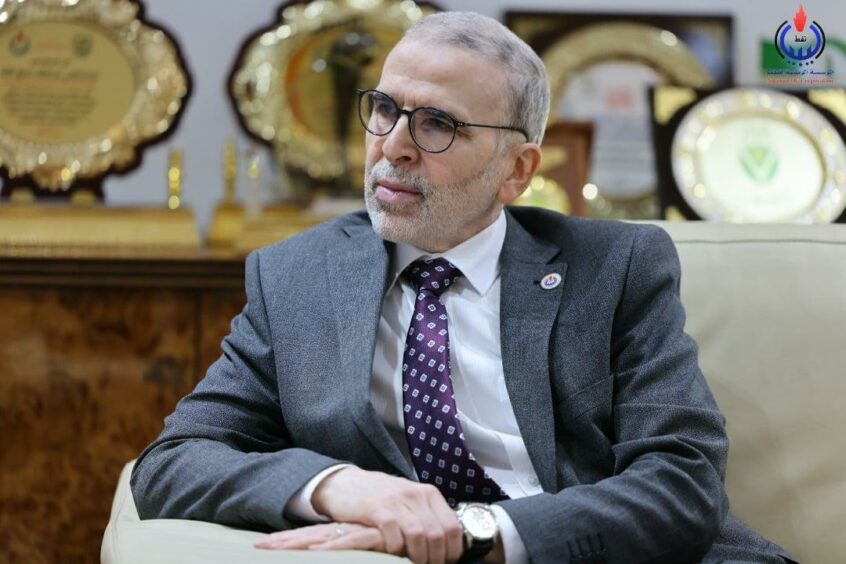
Pandemonium has broken out at the Tripoli headquarters of National Oil Corp. (NOC) with the arrival of a new chairman, while the incumbent refuses to quit.
The newly appointed Farhat Bengdara held a press conference at the offices this morning. A power cut, and an apparent unwillingness from NOC employees to assist with a generator, disrupted the new official’s presentation.
Meanwhile, former chairman Mustafa Sanalla returned from Hajj on July 13. Sanalla returned to the headquarters with a warm welcome from employees.
An armed force from the Government of National Unity (GNU) stormed NOC this morning, the company said. The aim was to install the new board.
Sanalla gave a long televised address in the evening, saying he would not accede to the order to leave. He went on to accuse outgoing Prime Minister Abdul Hamid Dbeibeh of scheming with the United Arab Emirates.
NOC reported that the “armed and masked group” had entered the building without permission, disrupting work and causing “some injuries” to employees.
Any harm that befalls the company and its workers is the fault of the GNU, and Bengdara, the statement said. It submitted an official complaint to the Attorney General.
Verisk Maplecroft analyst Hamish Kinnear said should Sanalla not step aside, a parallel NOC could emerge. This would create “uncertainty over which institution is the legitimate entity with which foreign companies and buyers of Libyan oil and gas can do business”.
Taking sides
The US appeared to express support for Sanalla to continue in post. On Twitter, the US embassy in Libya, quoting Ambassador Richard Norland, said he was following developments at NOC closely.
The company has “remained politically independent and technically competent under the leadership of Mustafa Sanalla”, Norland said.
The ambassador said differences of opinion over the NOC board should be settled, if need be, but not through “armed confrontation”.
Sanalla said NOC would work with the Central Bank of Libya (CBL) but not Dbeibeh. The prime minister picked the new chairman, Sanalla said, at the direction of the UAE.
NOC’s website and social media accounts continue to back Sanalla. The company has reposted Norland’s comments about Sanalla. The new board contravenes United Nations Security Council resolutions, which state NOC is impartial.
NOC has described the GNU’s remit as expired, saying it lacks the authority to change the company’s board and chairman. Sanalla has said NOC will no longer co-operate with the GNU, although it is unclear quite where power now lies within the corporation.
The House of Representatives (HoR), the eastern government, said stability at NOC was essential. Affirming the legitimacy of the current board, the HoR said the GNU’s decision was invalid.
The UK echoed the US’ sentiments. The “independence and integrity of the NOC must be protected and respected”, it said.
The local UN mission have yet to communicate their thoughts on the NOC dispute.
Kinnear went on to describe the NOC standoff as “further chaos” for Libya’s oil sector. “Protests have forced the closure of several key oil ports since April 2022, reducing exports and worsening a global energy supply shortage. The battle for executive control of the NOC is likely to further complicate efforts to re-open the ports.”
Updated at 3:31 pm with comments from Kinnear and with UK comment.
